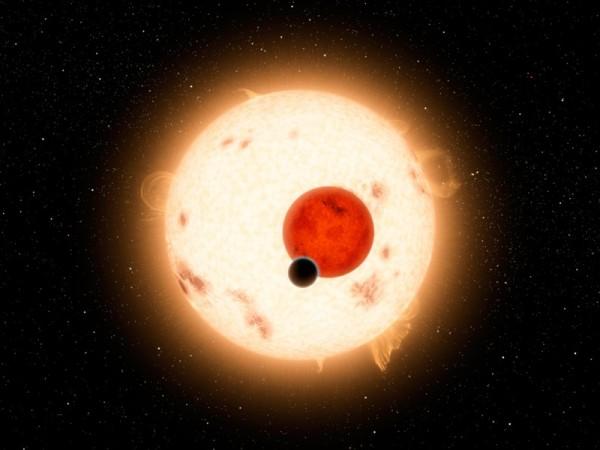
A new research found that planets like 'Tatoonie' with two Suns as shown in the epic space franchise "Star Wars" might have higher chances of supporting life.
The study, presented at the 222nd meeting of the American Astronomical Society in Indianapolis, stated that a planet having twin Suns (stars) would be safe from solar winds and reside in the Goldilocks zone of habitability.
"[The stars] calm each other down. It's like a really good marriage. They vent to each other, and they're not focused on anything else. They slow each other down and that causes increased magnetic protection of the planets," said Joni Clark of New Mexico State University to Space.com
"It also leaves the potential open for smaller planets that have less magnetic field protection to remain habitable because in a sense they don't have to protect themselves from as much as they would in a single star case."
In such cases, the planets not only revolve round the Suns but also vice-versa due to the gravitational pull.
However, the study observed that if the planet revolves around one star then life might not be possible as it will be subjected to solar hostility from the other star.
Paul Mason, an astrophysicist and contributor to the study in an earlier interview said, "Other groups have recently shown that planets close to stars of any type suffer water loss, like Venus, and atmosphere erosion, mostly early in the star's life. These effects may occur even for planets with magnetic field protection. The beauty of close binaries is that their habitable zones are located farther out."
Scientists are on the lookout of such dual star systems which can be possible through the Kepler telescope.
Meanwhile, an older NASA report dating back to September 2011, stated that Kepler had discovered a planet which orbited two stars. But, contrary to the recent study of habitable connotations in such cases, the planet set 200 lightyears away from Earth, was cold, gaseous and devoid of life. The planet called Kepler-16b was discovered during observation of transits.
















